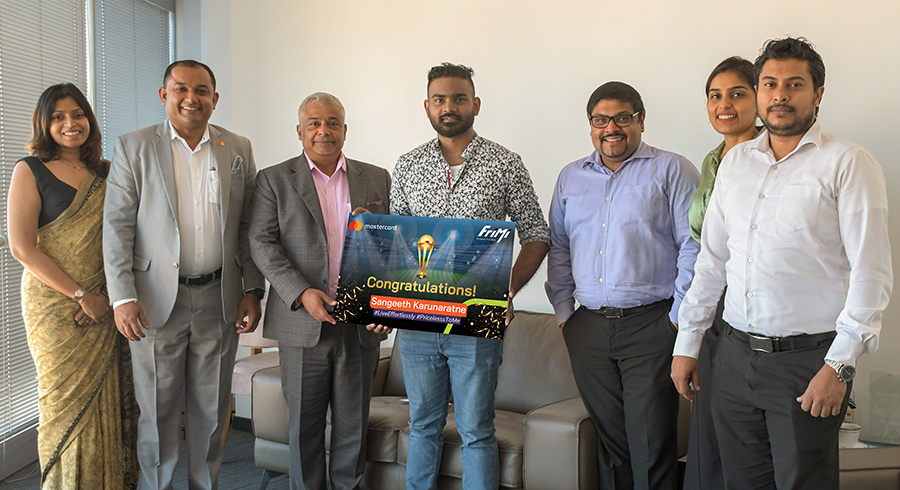FriMi and Mastercard Collaborate to Deliver a Valuable Cricket World Cup VIP Experience

Businesscafe - FriMi, Sri Lanka's pioneering fully-fledged digital banking experience powered by Nations Trust Bank, joined forces with Mastercard to create an extraordinary cricket experience for fans during the Cricket World Cup.
The winning FriMians, received exclusive Cricket World Cup VIP Mastercard Experience Box tickets, in addition to an exclusive match day experience for Sri Lankan matches that took place from October 7th to November 9th.
These fortunate winners were selected through engaging promotions done via FriMi marketing channels.
Simultaneously, a grand promotion was conducted providing participants a chance to win tickets to the Cricket World Cup and air tickets for the Sri Lanka vs. New Zealand match on November 9th.
To qualify, FriMians needed to make transactions worth of Rs. 10,000 or more using the FriMi physical or virtual Mastercard debit card, which automatically entered them into the draw.
This initiative not only added to the excitement of the tournament but also highlighted the remarkable outcomes that result from strong partnerships and unwavering commitment to customer satisfaction.
Randil Boteju, Senior Vice President - Digital Banking and Acquisitions of Nations Trust Bank, remarked,
“At FriMi, we are dedicated to creating effortless and unforgettable experiences for our customers.
Our partnership with Mastercard is an embodiment of our mission to deliver convenience and value to our customers.
We are thrilled to provide our FriMians with the chance to Live Effortlessly during the Cricket World Cup.”
Sandun Hapugoda, Country Manager, Sri Lanka and Maldives, Mastercard, said,
“Mastercard has always believed in leveraging the power of collaboration to provide unique and priceless experiences to its partners, customers, and cardholders.
Since cricket is a big passion point for people around the world, the company’s association with FriMi will ensure that fans will get to experience many memorable moments during the ICC Men’s Cricket World Cup 2023.”
FriMi the fully-fledged digital banking experience powered by Nations Trust Bank consists of ground-breaking products and services that are designed and developed to delight customers thus providing novel experiences.
FriMi has been awarded on both national and regional levels including Online Brand of the Year and ranked amongst the Top 30 Best Digital Financial Services Providers in Asia Pacific, Middle East, and Africa.
FriMi is available on Android, iOS and Harmony OS and anyone in Sri Lanka above the age of 18 years can get on board FriMi by downloading the app.
FriMi is enabled by Nations Trust Bank PLC, the bank is strongly focused on digital empowerment through cutting-edge digital banking technologies.
Photo Caption Standing from left to right Mahesha Amarasuriya – Director, Mastercard Sri Lanka, Sandun Hapugoda - Country Manager, Sri Lanka and Maldives, Mastercard, Vikas Varma - Chief Operating Officer, Mastercard, Promotion Winner – Sangeeth Karunaratne, Randil Boteju - Senior Vice President - Digital Banking and Acquisitions of Nations Trust Bank, Malishini Punchihewa - Senior Manager, FriMi, Chameera Bandara - Manager, Cards Business Acquisition, FriMi
